July 2022 marks 7 years living and travelling full time in our home on the road. The time working and saving for our dream seemed to last forever, it was in fact around 4 years. Yet, the last 7 years has flown by. We have learnt a lot along the way and are still learning.
Here Are 15 Lessons Learned Full Time Caravanning So Far…
We normally have an idea in which direction we want to travel, be that to a state or territory. Also, a rough idea of what town or location we want to head to. Apart from that, it’s a case of picking a road in that direction. For example, we booked the Spirit Of Tasmania and a Hipcamp (Farm On Franklin) in advance, chose a direction to travel then winged it for the three months we were there.
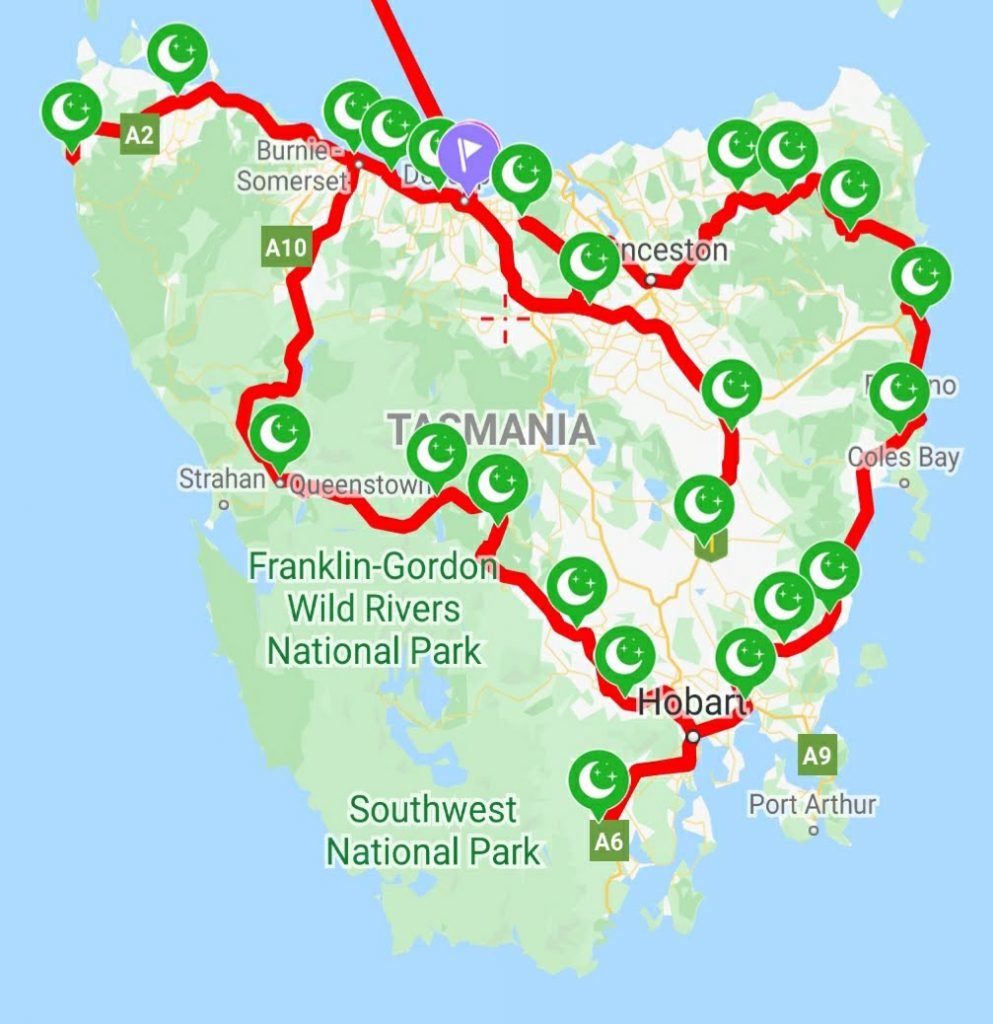
WikiCamps is our go to camp bible so we use that to pick camps along the way. Now, as our plans aren’t set in stone, if we like the look of another camp on route, we stop. Alternatively if we don’t like the look of a camp when we get there we drive on and choose another one. Sometimes we even decide on the morning of travel where we’re going to head.
Living on the road, this should probably be my number one of our 15 Lessons Learned Full Time Caravanning. If you have Facebook, and are in one of the a many camping groups, which hopefully includes ours 😉 then you would have seen someone asking for the best camp in a town etc. People often answer the question with “get WikiCamps”. Although we Love WikiCamps, this is irritating at times as they are asking for an opinion on a camp not an app.
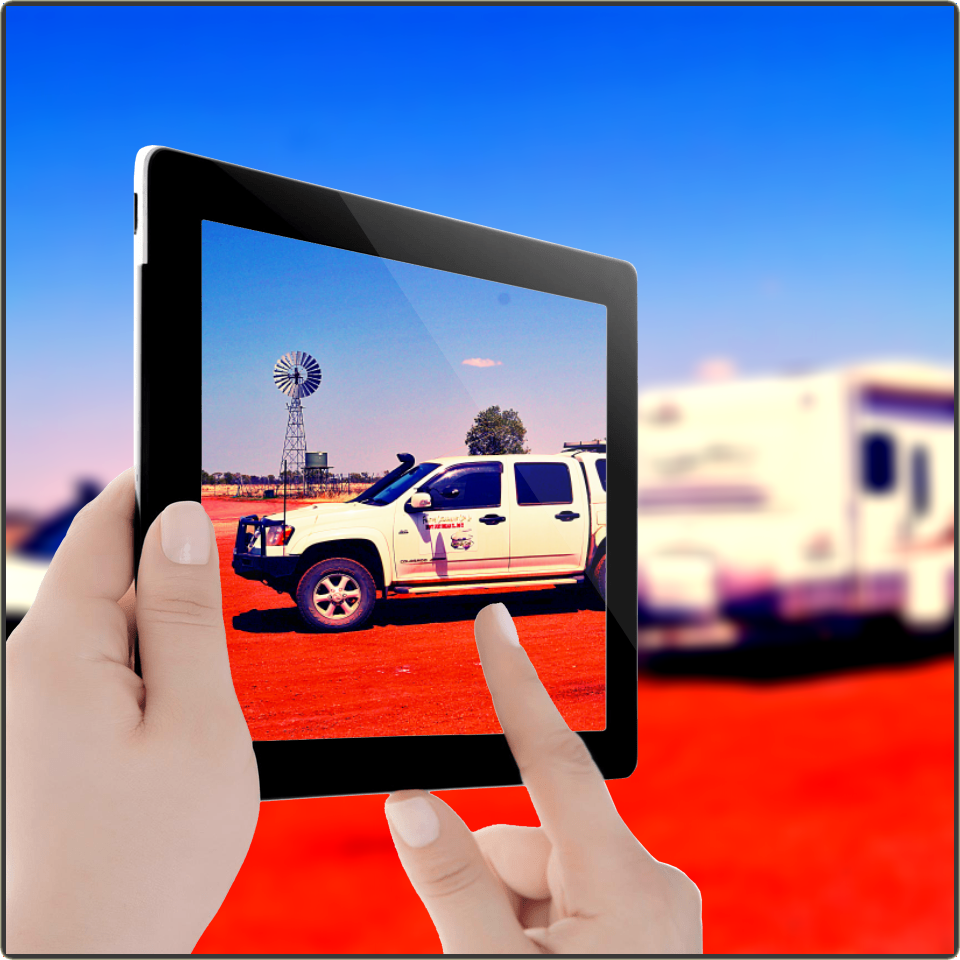

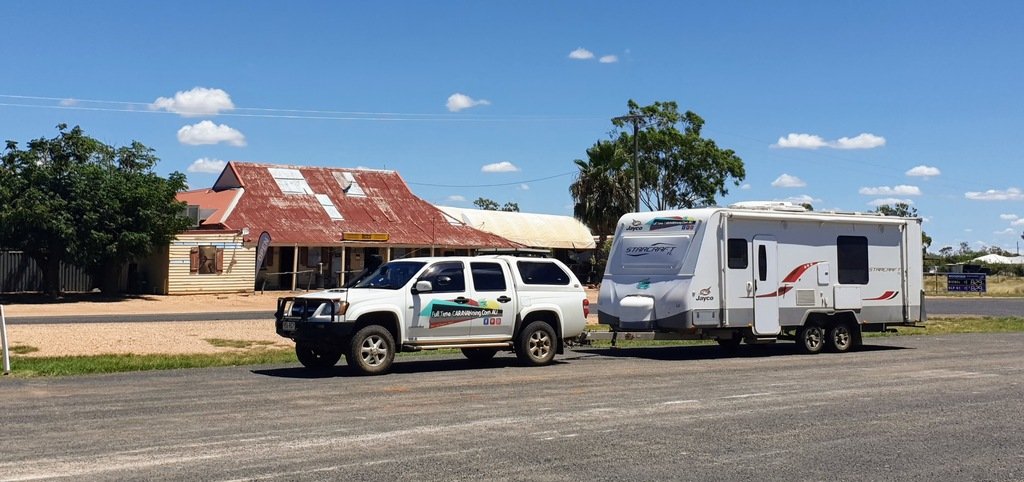
WikiCamps is our go to but originally we also had one of the Camps Australia Wide books. I was worried we would be out of internet range and not be able to look up a camp. No worries though as WikiCamps has the ability to see content off line. That includes free camps, caravan parks, water taps, dump points & points of interest such as Australia’s Big Things, laundry mats and rest areas.


A couple more of our go-to’s are Country Pub Camping, not only do they have a website with pub camps around Australia, they have a Facebook group. This is where people share there photos and experience, supporting and camping at the pubs. Alternatively Staying at a showground is one we love. They are normally cheaper than caravan parks with the same facilities.
Not forgetting our website and Full Time Caravanning Facebook page have all our camp stays around Australia 😀 There are a heap more out there, to many to add. What’s you favourite way to find a camp?
What ever you’re travelling in should be comfortable for you and your personal lifestyle. Thankfully we checked out new and pre loved caravans, motorhomes etc for a couple of years before we chose our van.
The caravan layout that was best for us has a club lounge. As we’re full time caravanning we can sprawl out and relax on it. Rather than having a cafe setting that you have to sit up to attention on.
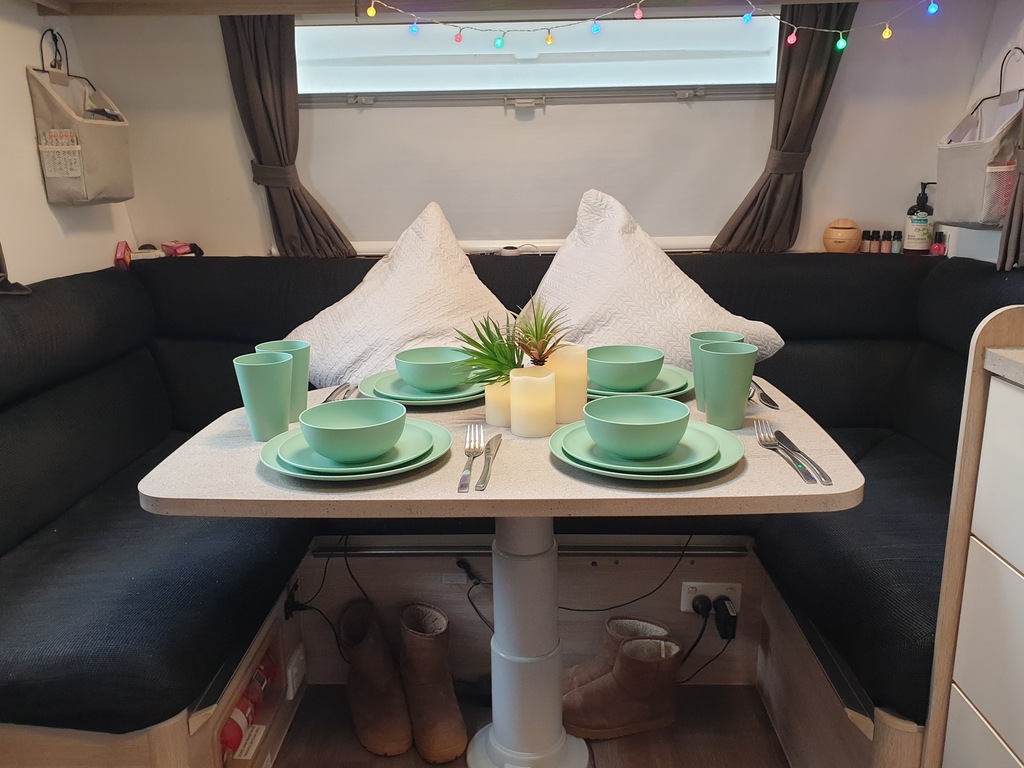

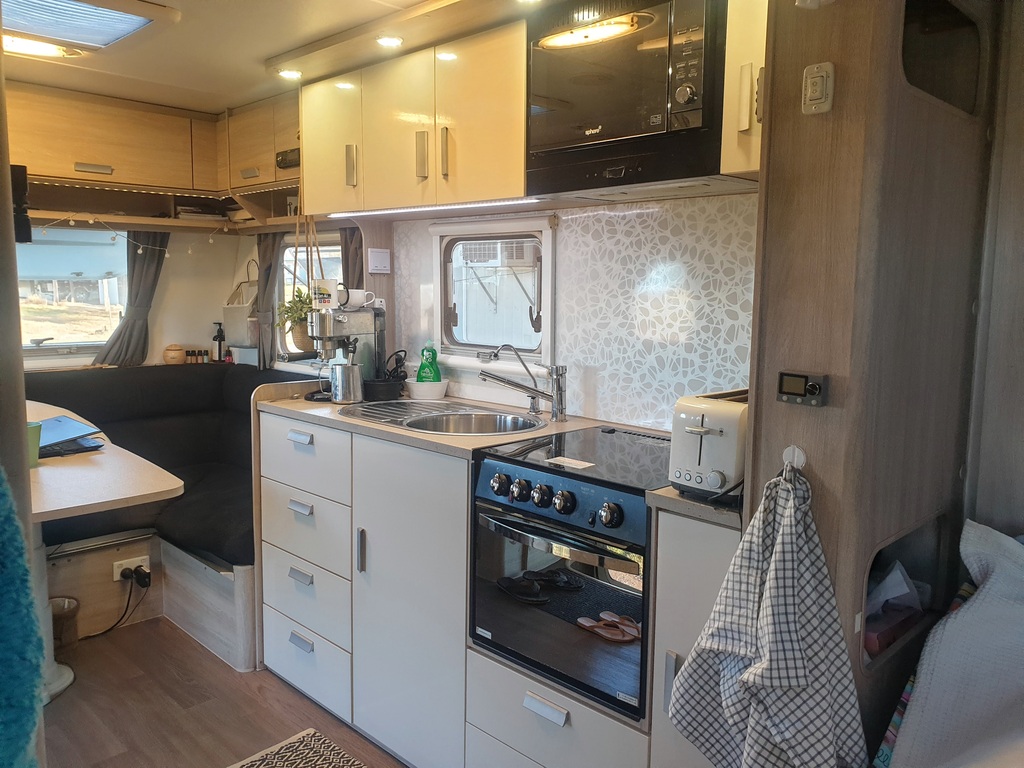
Our large compressor fridge freezer is perfect for stocking up on food before we go to small outback towns. Not to mention being great when off grid in the middle of woop woop. Also in our kitchen we have an oven as I still cook the same as in a house.
Others opt for cooking outside on the BBQ (which we also have) but I do like my oven. Not forgetting our caravan washing machine. It’s been priceless for us when Larry’s working on a station and were nowhere near a laundry mat.

You should work out what your needs are and picture yourself in what ever you think you want. Then check out as many vans etc that you can and the decide on a layouts. Even better rent and test out the type of home on the road you want.
Planning where we’re heading is usually my job (Sue). I love looking up what’s to see on the journey, whether that’s a lovely small country town, coffee shop, point of interest or landmark. As a traveller this is possibly my favourite of our 15 Lessons Learned Full Time Caravanning.

We have found that driving isn’t necessarily about getting somewhere, rather seeing what we haven’t seen along the way. Meandering in a direction, stopping where ever we feel, for however long we feel. Another example might be when we head to places like the sunshine coast hinterland. I got a spring in my step when I searched for things to do in & around the Kenilworth Showground, where we camped.
Work was something we were worried about before we started full time caravanning. Larry has had no worries finding work since we hit the road. Unfortunately, due to long standing health issues I’m not working at the moment, but there is heaps of work if I could.
If you’re willing to step out of your comfort zone then it’s easier still. Larry’s found work on a cattle station in WA, work on a sheep station and work on a broadacre farm in NSW. Not to mention both of us working on an island in the Whitsundays both before and after Cyclone Debbie’s destruction.
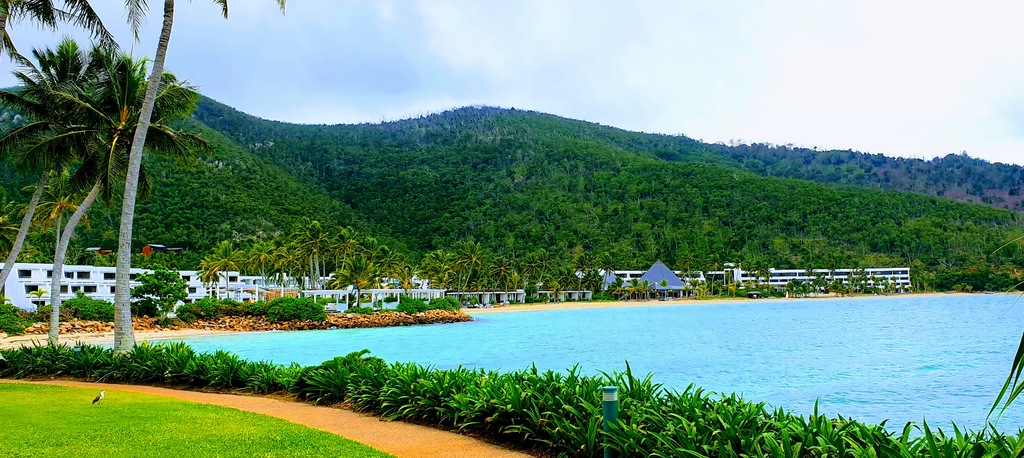
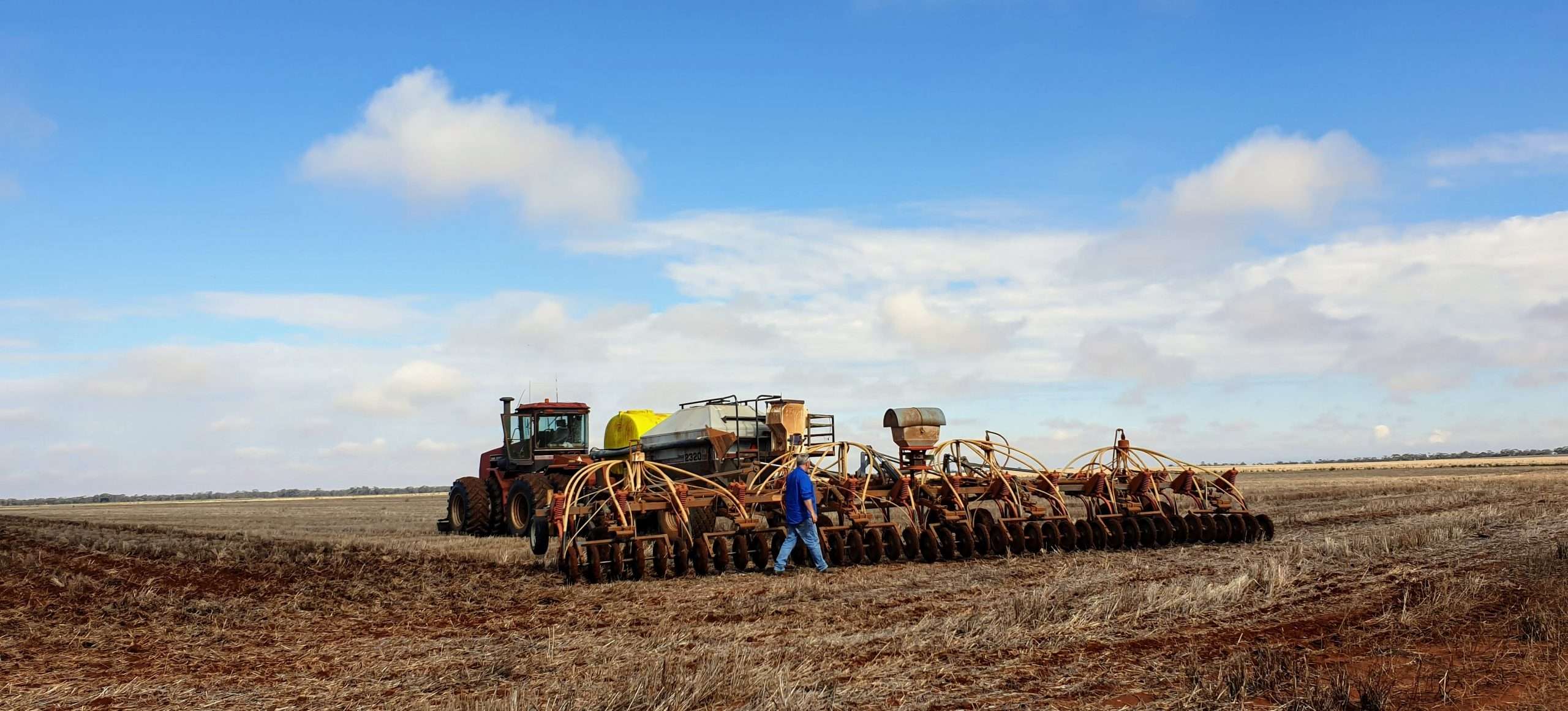
As well as the usual go to job sites, there are heaps of Facebook pages for those wanting to work around Australia. Here are just a few:
Of course you can always check out our “40 How To Find Work While Traveling Tips” Post and Our Full Time Caravanning Facebook Page. Talking to locals at the pup & joining a Facebook group in the town you want to find work are also good ways to find work.
Early on in our travels we had a chat with another full time travelling couple. One of the pieces of advice they gave was to not drive more that 200km at a time or you miss so much. We try and keep to that advice, give or take a few kilometres.
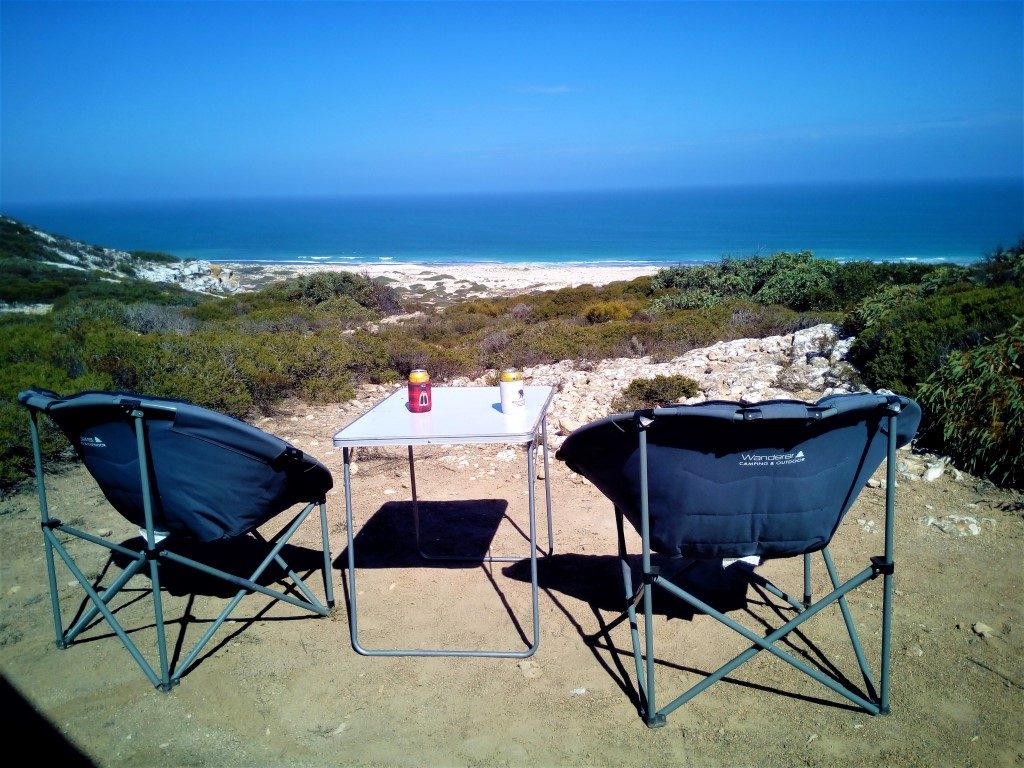
Obviously if we’re heading to a Farm Sit or work, we might travel for longer. The Nullarbor is a prime example of stopping and smelling the roses. There are so many free camps with spectacular views, we didn’t want to rush and miss anything. Ultimately we are travellers not holiday makes.
Planing our meals for a week or longer is something I find saves money, time and waste. Doing big cook ups and freezing them is also a must in our house. We have found this comes in handy when we’re travelling between camps and need a meal on hand. Something you don’t have to think about. Also, if we’re in remote areas with no supermarket we have dinner covered.
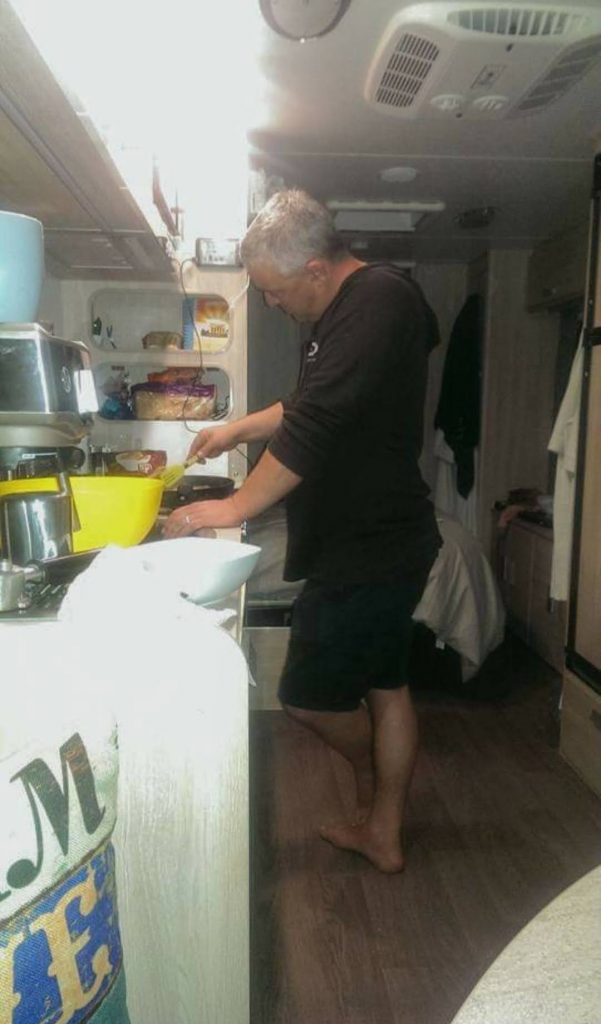
On a side note, when storing food in your freezer, remove packaging when you can, this will save space. It also gets rid of all that packaging in one go. This saves you emptying your bin so often.
Here’s what I do. I take out mince & chicken etc from it’s packaging and put it in to small freezer bags. I also do the same for large cook ups of soup, Bolognese and Chilli Con Carne etc. Write on the bag with a permanent marker what it is, temperature and time it takes to cook. A vacuum seal machine would be even better.
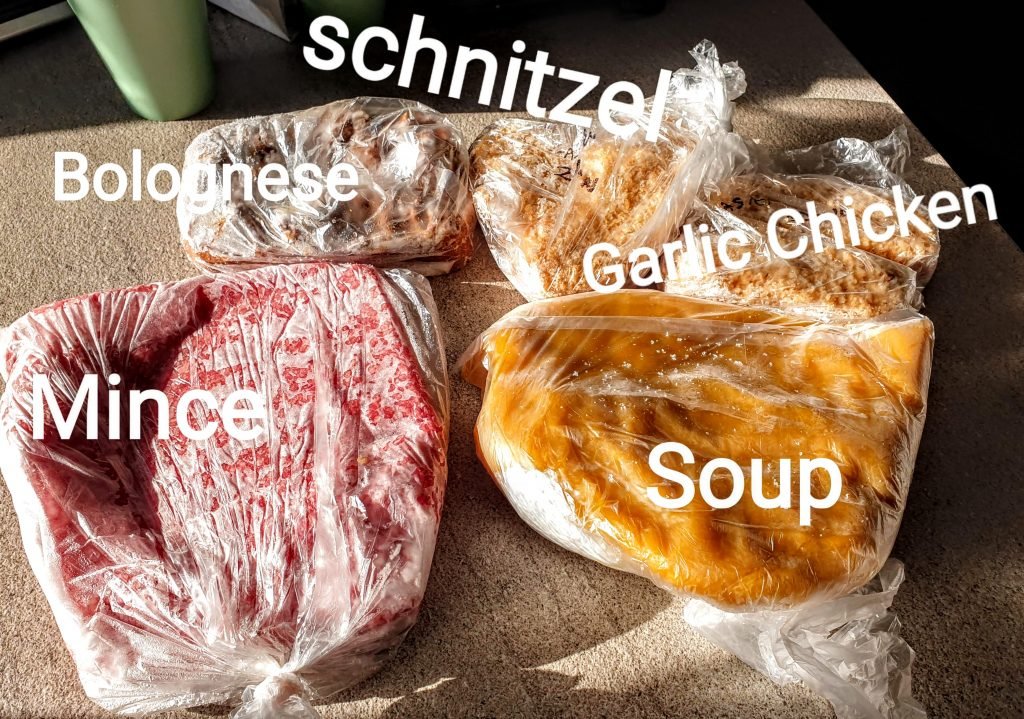
I often hear people say “don’t you get on each others nerves living in such a small space”? The simple answer is “No”. Before we moved into our van we had lived in one room with an on-suite. That was when we lived and worked on Hayman Island. That gave us a taste of down sizing and living in a small space together. In fact our van is bigger than that room. certainly, having a kitchen and couch, makes the van feel much bigger.
Larry and I can be in the same room but feel like were have our own space. Larry’s happy on his side of the couch doing his caravan home tech stuff, watching Youtube or on his computer. I on the other hand can be on my computer, reading or cooking.
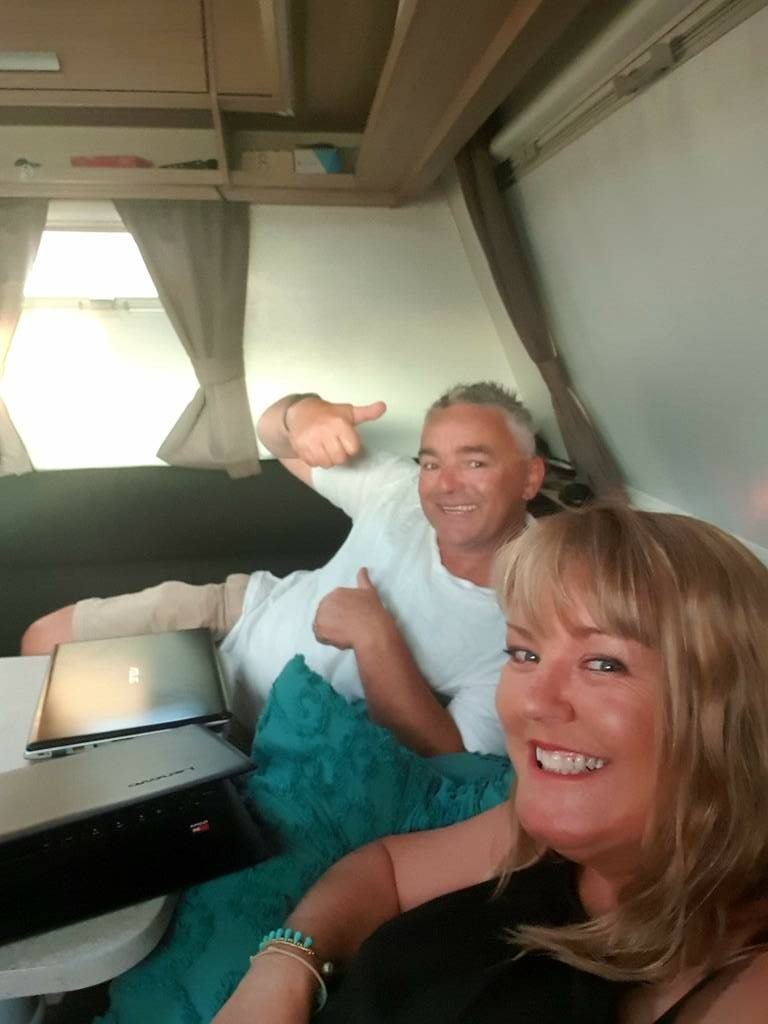

Larry often potters whether that’s tech stuff or keeping on top of caravan and ute maintenance. Netflix is something we both like to watch together while lose ourselves in a movie. Of our 15 Lessons Learned Full Time Caravanning this might be the hardest for some especially if you have kids or have come from a large house.
The saying it’s a small world certainly rings true when you travel around Australia. I guess visiting every state and territory we were bound to bump in to people. While shopping in WA, I noticed someone I worked with years ago in QLD. Larry met someone who went to the same school as him in QLD yet they are both from NZ.
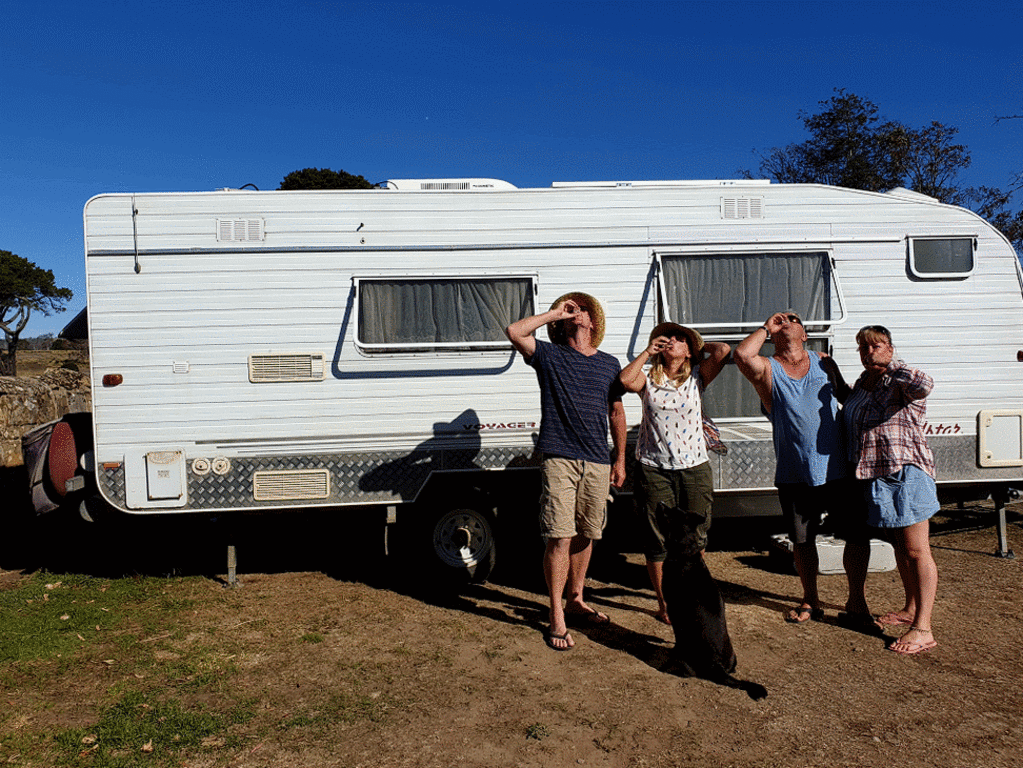
We have even met people who know our family members. Not forgetting the people we’ve met on the road and bumped into again. Maybe even deliberately bumping into them again, like Frannie, Crispy & Bella from Not Grey Nomads when we crossed paths again in Tasmania.
Some people cant understand how we live in a caravan full time. Some of the questions they ask are: “where do you actually live” (as in bricks and mortar house) they have a look of confusion on their face when we say ” our van is our full time home”
When asked “where are you from?” we say “we live on the road full time”. Ultimately, they don’t understand why we cant give a simple answer, with the name of a town. The thing is, neither of us live in the town we were born. We both have a bit of gypsy in us and I have never been in one place for long. We do tell people where we started our travels but that was 7 years ago now.
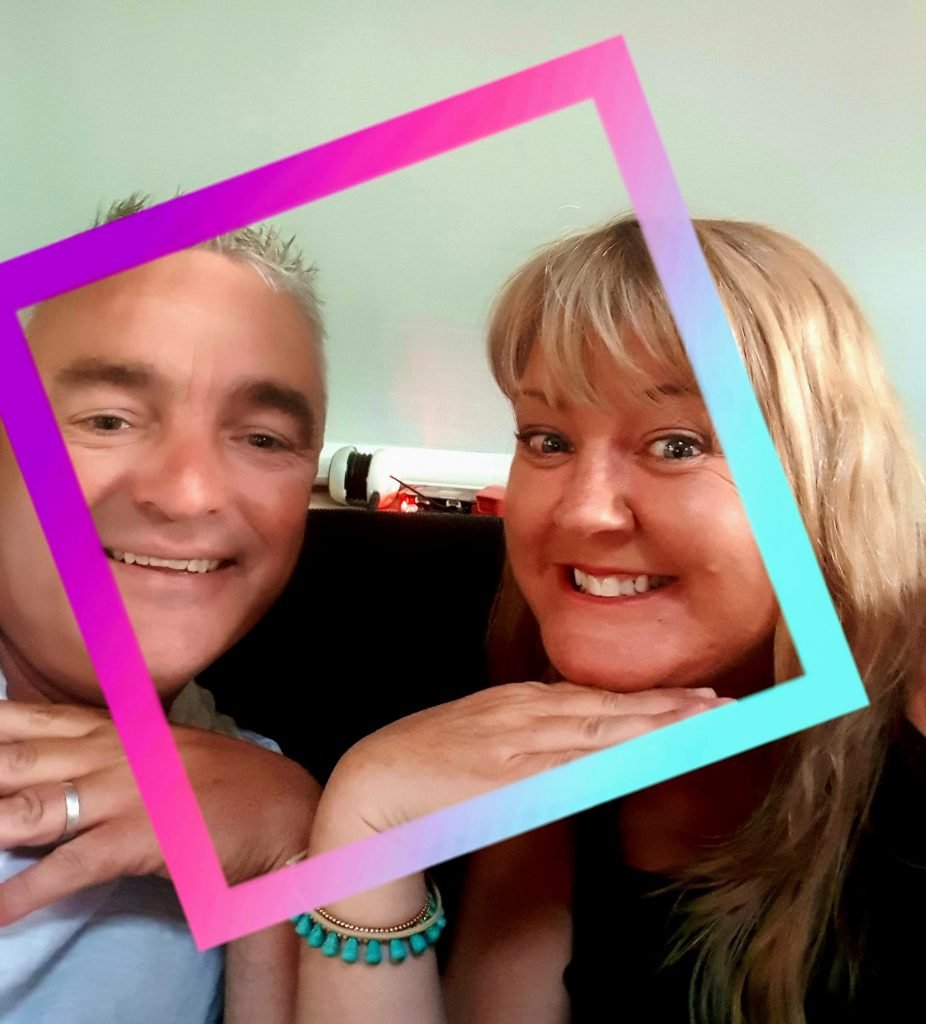
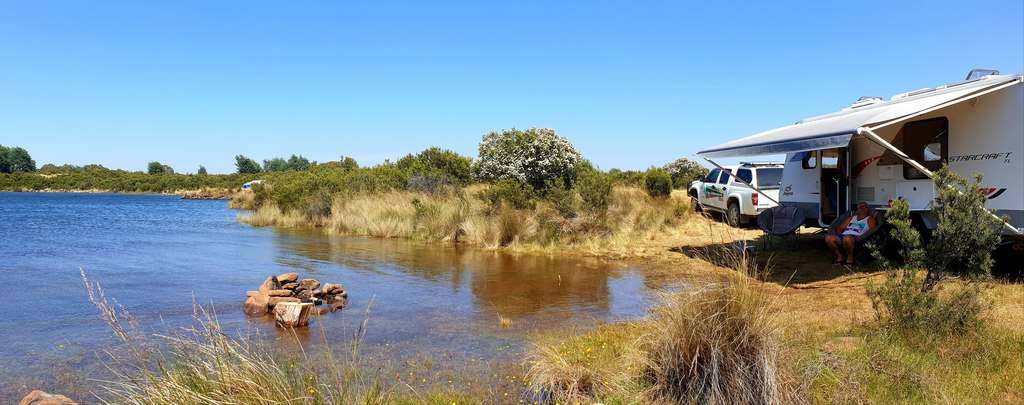
Similarly, when filling in forms it’s hard to give an address for anyone living full time on the road. When applying for a Telstra sim card for our router they wanted to know our jobs and the money we earn. Having savings we didn’t need to work for a while. We explain we were not unemployed, not on benefits and was not homeless. Our information is literally, outside the boxes they had to tick on their computer. Thankfully they solved the situation by bending the truth, saying we were on extended leave. This is the most annoying of our 15 Lessons Learned Full Time Caravanning
I’m thankful every day that we don’t live the “normal” lifestyle. You know, that 9 to 5 job, a 30 year mortgage, huge power and water bills, living so close to people, working all hours to save for a two week holiday.
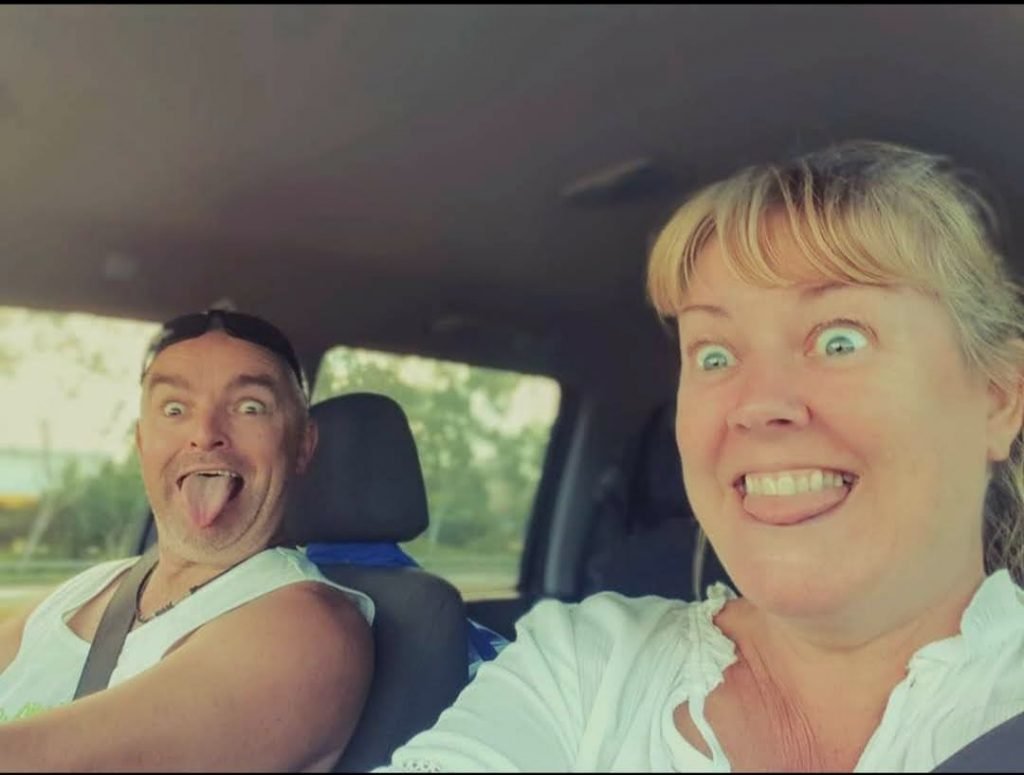
Similarly, when the world was in total chaos during the pandemic we felt very lucky. Once we had a safe place to park life was so much easier for us than people living a so called normal life. We had no mortgage to worry about when not working, no high bills to worry about, not stuck in a unit without a garden to breath in some fresh air.
You might think, how about the price of fuel? Again, as we’re not holiday makers we don’t need to drive every day to check out attractions. We can stop in one place for weeks or months. So when people ask “ how do you afford to travel full time” we wonder “how can you afford not to”?
Of our 15 Lessons Learned Full Time Caravanning, this brings us the most joy. We have found that catching our own water and produce our own power brings a smile to our dial. On our 3 month visit to Tasmania, we didn’t need to plug into power at all as our solar and battery set up was so good. For power, we have 3x 200w solar panels on our caravan roof as well as 3x 120ah Lithium batteries and a 300/600w inverter. That’s not including the solar, battery and 2000w inverter on the ute.
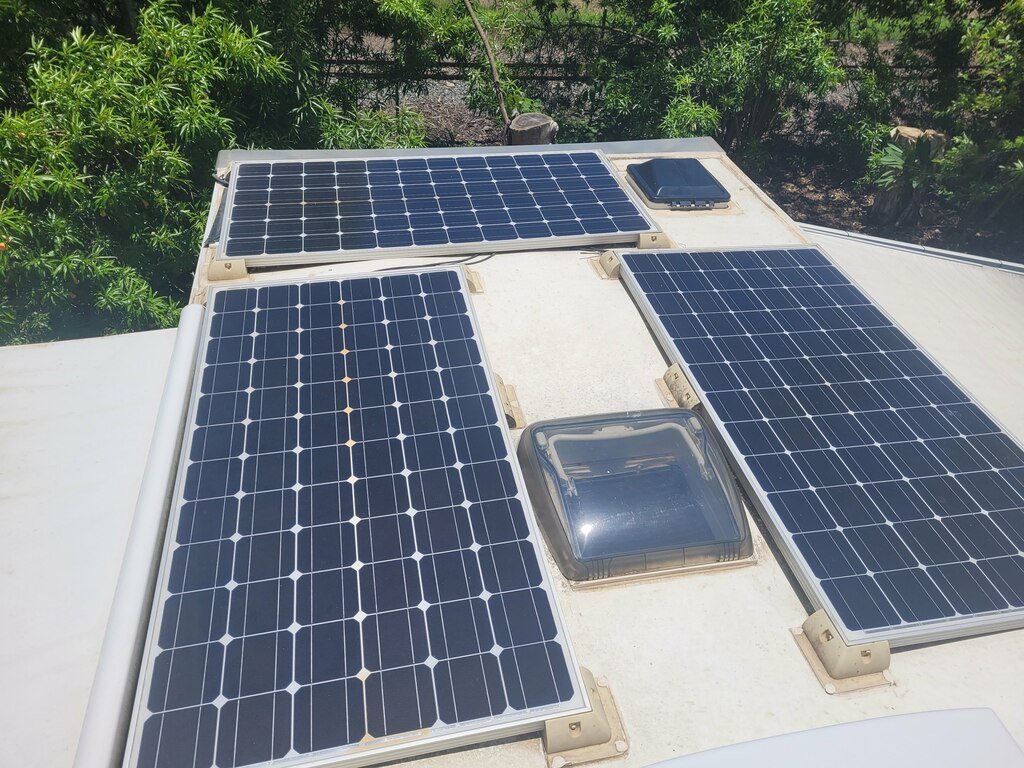

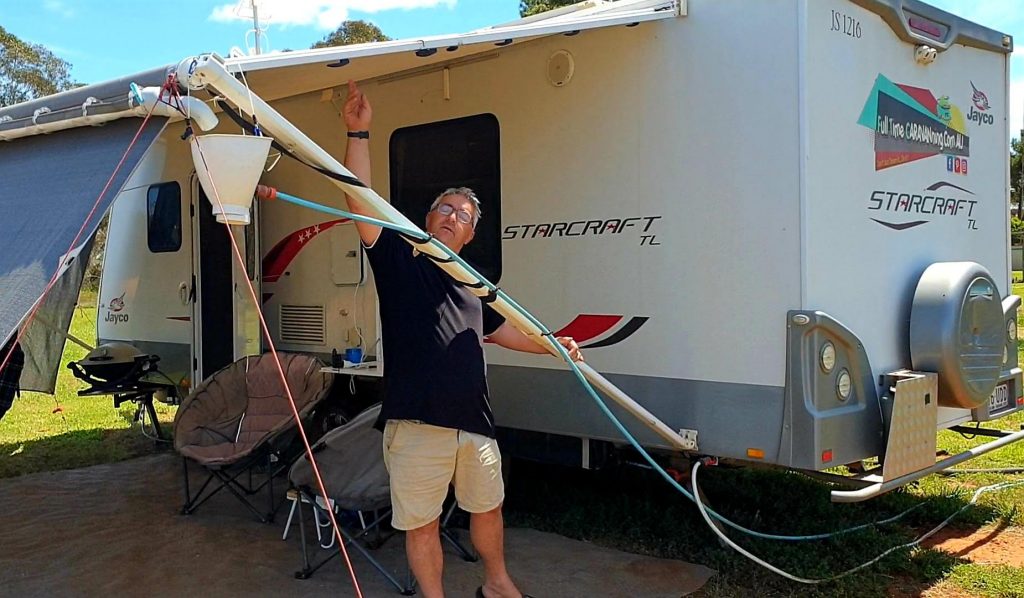
As for water, when it’s raining, we have our awning set up to catch water. Larry has automated the process so that the rain water is sent to a dedicated rain water tank which in turn sends it to our two fresh water tanks. No high power or water bills in our home on the road when conditions are favourable.
Larry is always working on something whether its needed or not. Not that that’s a bad thing. On the contrary, preventative maintenance is whats needed when living in any kind of home. Here’s a few things Larry looks at on a regular basis
Anode – Larry checks our Suburban hot water systems anode around every 6 months. We are often in places that have bore water. The anode is a sacrificial magnesium rod. Its job is to protect the hot water tank from corrosion, prolonging its life.
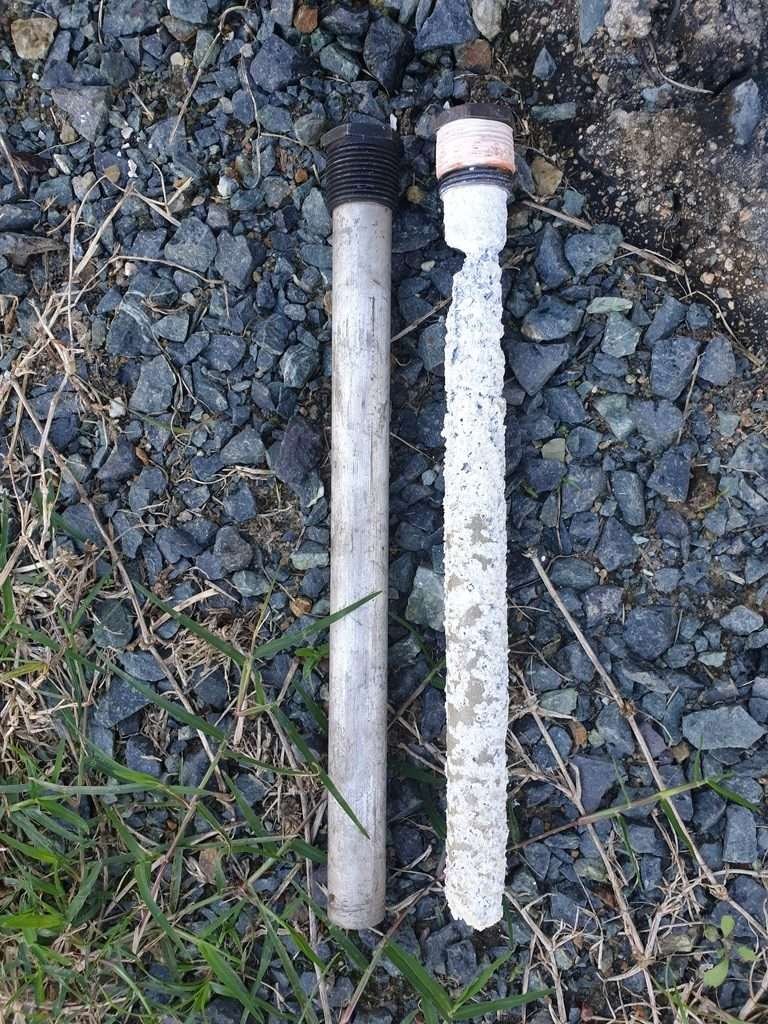

Hot Water System – At the same time Larry checks the Anode he checks the hot water cylinder, element and pressure relief valve. Again, we stop at a lot of places with bore water and calcium and have found we get a huge build up. If you are stopping at a caravan park on your holidays this is probably not something you should worry about. For us it’s something we keep an eye.
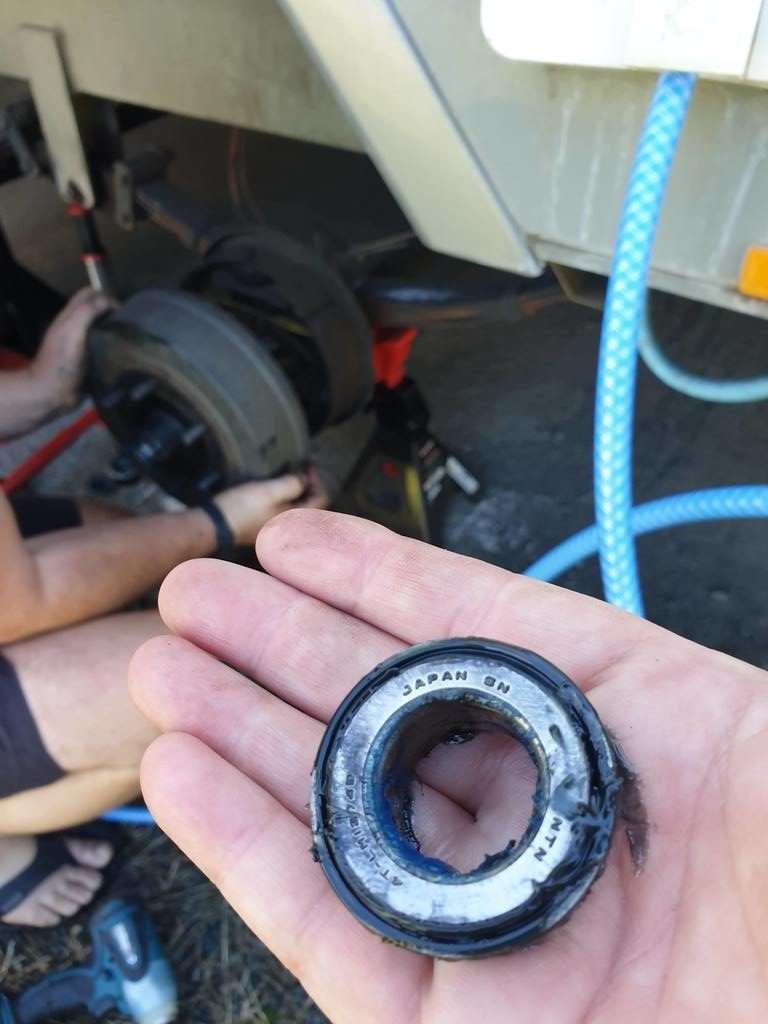
Re greasing the wheel bearings – Larry bought a wheel bearing packer so he could re grease the bearings to stop them wearing out. Larry is meant to do this ever year or so I believe. More in our Caravan Maintenance Tips post
Over the years we have found Boost has the best phone coverage for our need’s. Also for our internet when away from the van as Boost works on the same network as Telstra. We don’t have an off road van but we do go to places in the middle of woop woop. There are times when we might not have coverage but not so often we would swap it.
However, for our home internet we initially had the RV Wifi router. Larry uses the home router for our home assistant and tech stuff. Our RV Wifi started with an Aldi sim card but we changed it to boost for better coverage.
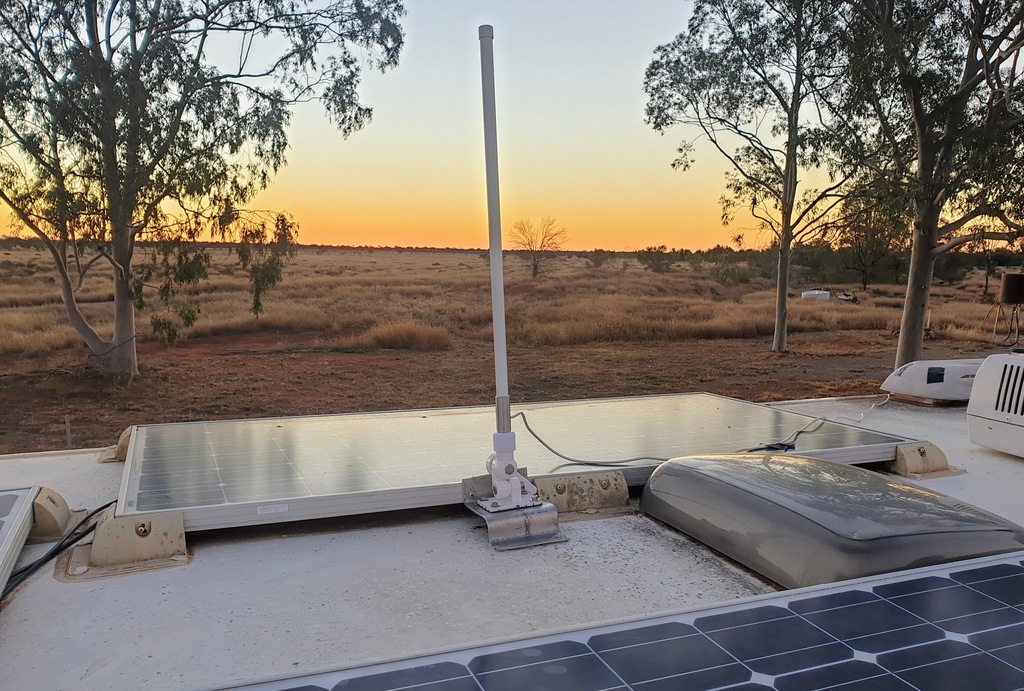
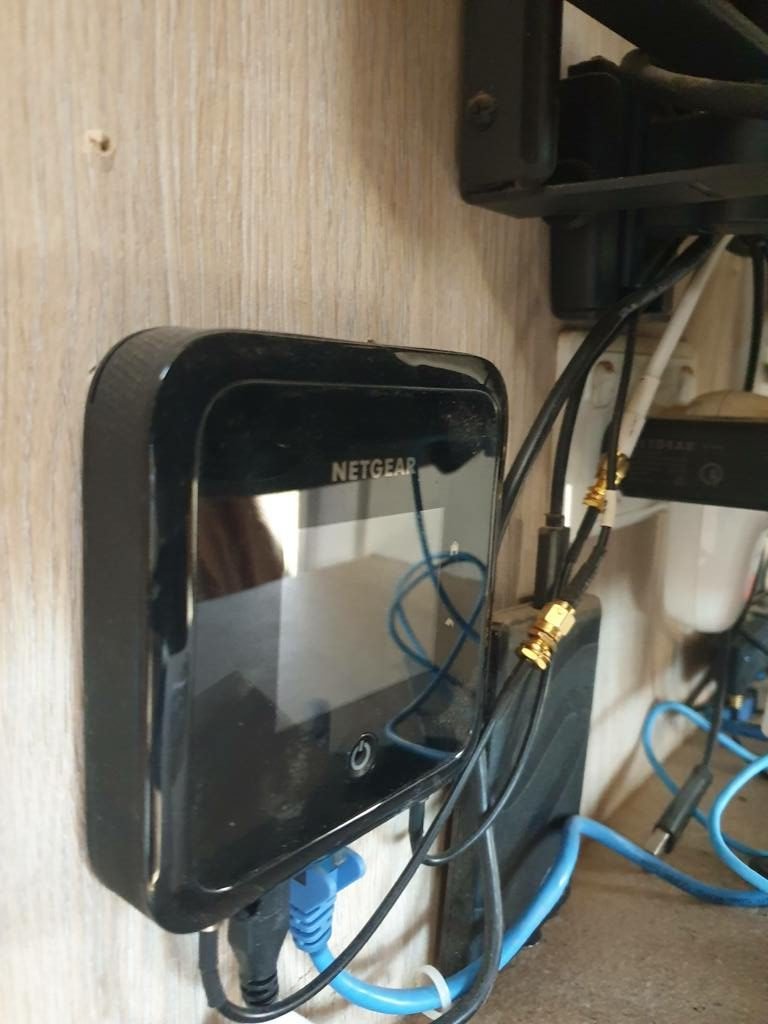
As we were finding our phones hot spot was in fact better than RV Wifi we changed to a Nighthawk M5 router with a Telstra sim card. Larry also bought an external antenna to boost the signal, just to be sure. Its the best we have had internet while on the road with speeds many times faster than what the RV WIFI ever gave us. Great for our Netflex watching. Of our 15 Lessons Learned Full Time Caravanning, Boost is something we recommend to try.
The last of our 15 Lessons Learned full time caravanning is house and farm sitting. Great for saving money while travelling. We prefer farm sits rather than house sits as they are more likely to be on a property rather than a built up area. Also, they are often a longer type of house sit.
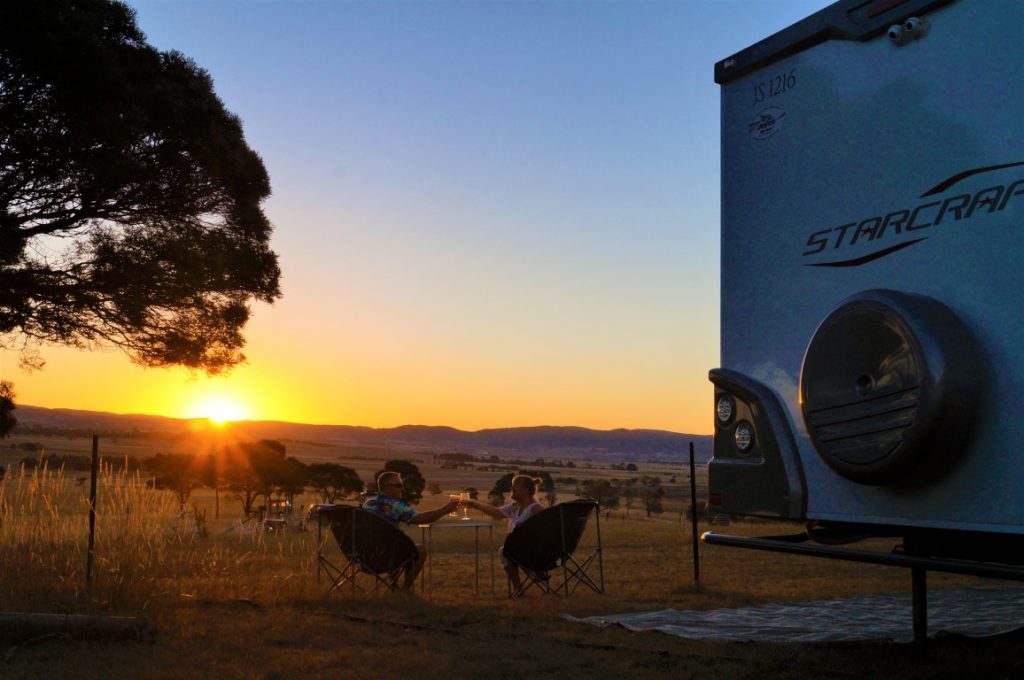

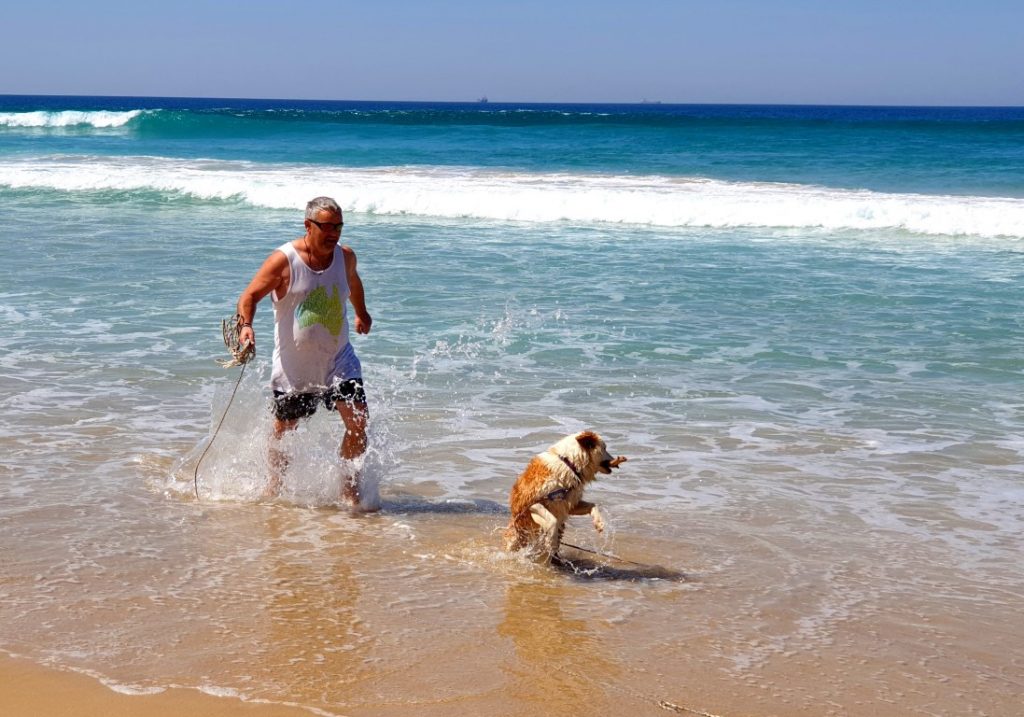
We have been lucky enough to farm sit with horses, chooks, dogs, cats and cows, all while staying for free on some lovely property. Ultimately giving us the opportunity to check out the surrounding areas without spending money on caravan parks etc.
While farm sitting on the Sunshine coast Hinterland we got to visit the beaches and rainforest. On other sits we got to stay near Nambucca Heads in NSW & another a drive away from the ACT. We use Aussie House Sitter and highly recommend them.
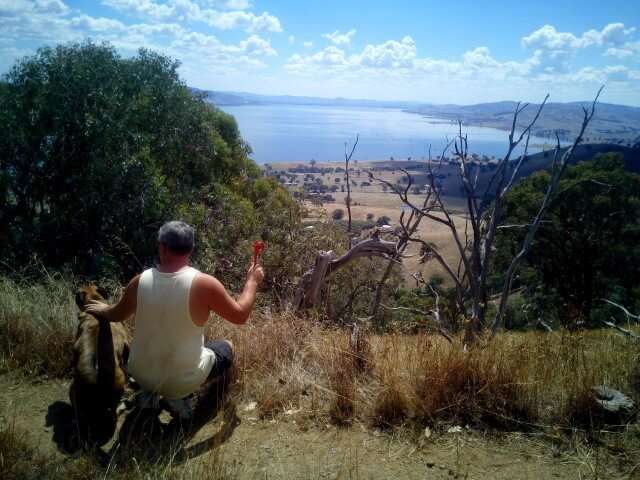

Aussie House Sitters are our choice of house sitting sites. Use our Coupon Code “AHS15%off” for 15% off your joining fee
To conclude, as I mentioned, we are still learning and wouldn’t swap van life for quids. We can move if we have noisy neighbours, move to the coast and have a beach holiday or the outback and have a bush holiday all while staying at home.
If you liked our 15 Lessons Learned Full Time Caravanning, check out our other tips, tricks and helpful posts.
Track your trip with this UV outdoor or fabric map of Australia from Adventure Awaits
1 thought on “15 Lessons Learned Full Time Caravanning”
As always a very good read
Thankyou
Kev And Tracey Howe
Comments are closed.